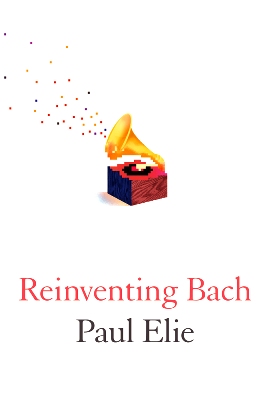Elie, Paul. Reinventing Bach. New York: Farrar, Strauss and Giroux, 2012.
F or musicians, and especially church musicians, J.S. Bach sets the standard. What other musician has stood the test of time quite so well, inspiring both musicians and non-musicians centuries after his death? Who has mastered the technical intricacies of composition quite so well while maintaining the ability to reach artistic heights, often inspired by deep theological structures that underlie the music?
or musicians, and especially church musicians, J.S. Bach sets the standard. What other musician has stood the test of time quite so well, inspiring both musicians and non-musicians centuries after his death? Who has mastered the technical intricacies of composition quite so well while maintaining the ability to reach artistic heights, often inspired by deep theological structures that underlie the music?
Paul Elie, a senior fellow in the Berkley Center for Religion, Peace & World Affairs at Georgetown University, has given us a book that includes biographical material on Bach interspersed with stories of persons who have interacted with Bach’s music to achieve important contributions to humankind. Though not a musician, Elie writes beautifully about music and musicians, exploring the meaning of music and music-making, and articulates those meanings believably for those of us who are musicians.
In particular, Mr. Elie is fascinated with the technological innovations that Bach wrought in his time through organ building and repair, exploration of tuning systems, and his capacity to compose and transcribe music to be played on varieties of instruments. Elie then cites examples of later musicians who have delved into Bach’s music to play it on instruments Bach would not have dreamed possible and to record music that preserves live performance.
Mr. Elie’s background in religious studies serves him well in understanding Albert Schweitzer’s religious commitments and how they found coherence with Bach’s own. Other interpreters of Bach who used his music for technological [and other] breakthroughs are Pablo Casals, Leopold Stokowski, Glenn Gould, Yo-Yo Ma, even Steve Jobs, among others.
For someone wanting a fresh perspective on the influence of Bach and his religious commitments, and how other music and musicians have potential to influence humanity, even a quick read of this book will be interesting.